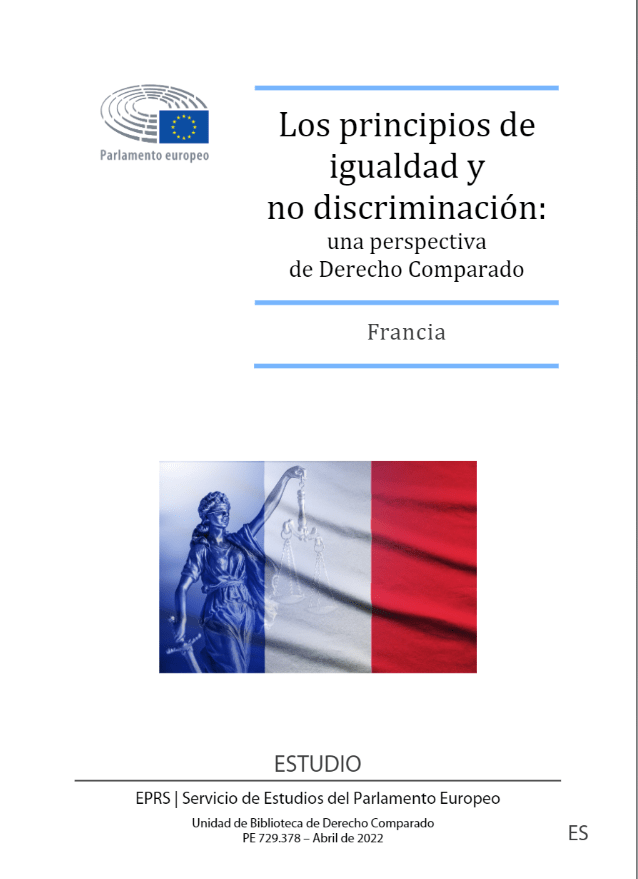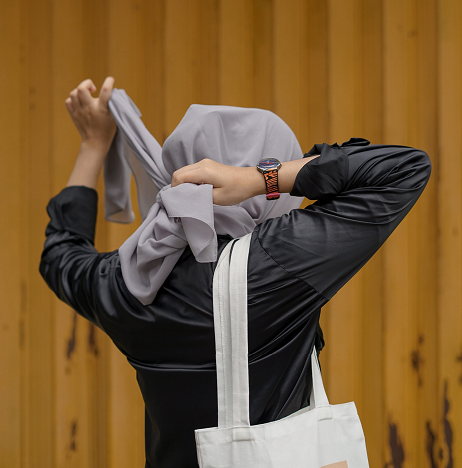According to the Court of Justice, religion and belief must be regarded as constituting one and the same criterion of discrimination, failing which the general framework for equal treatment in employment and occupation laid down by EU law, more specifically Directive 2000/78, must be undermined.
Since 2018, a dispute has been pending between L.F., a woman of the Muslim faith who wears the Islamic headscarf, and S.C.R.L., a company which manages social rents. The dispute concerns the failure to take into consideration the spontaneous application for a traineeship submitted by L.F. after she had stated, during an interview, that she refused to remove her headscarf in order to comply with the policy of neutrality prevailing at S.C.R.L. and set out in its internal employment rules. A few weeks later, the complainant reapplied for a traineeship at S.C.R.L., proposing to cover her head with another type of headgear, but was refused because no head covering, be it a cap, hat or scarf, was allowed on S.C.R.L.’s premises.
L.F. therefore complained of discrimination before the independent public body responsible for combating discrimination in Belgium, before bringing an action for an injunction before the French-speaking Labour Court in Brussels: L.F. challenged the company’s refusal to conclude a traineeship contract which, in her view, was based, directly or indirectly, on her religious convictions, and sought a declaration that S.C.R.L. had infringed the provisions of the General Law against Discrimination.
This Court asked the Court of Justice whether the terms “religion or belief” in the Directive on equal treatment in employment and occupation should be interpreted as two sides of the same protected criterion or, on the contrary, as two different criteria. It also asks the Court of Justice whether the prohibition on wearing a sign or a connoted garment in S.C.R.L.’s internal rules of employment constitutes direct discrimination on grounds of religion.
In its judgment of 13 October, the Court states that Article 1 of Directive 2000/78 must be interpreted as meaning that the terms “religion or belief” in that article constitute one and the same ground of discrimination covering both religious beliefs and philosophical or spiritual beliefs. In this regard, it recalls that it is clear from its case-law that the ground of discrimination based on ‘religion or belief’ must be distinguished from that based on ‘political or any other opinion’.

Los principios de igualdad y no discriminación, una perspectiva de derecho comparado
|
Referring expressly to the judgments in G4S Secure Solutions 2 and Wabe and MH Müller Handel, the Court held that a provision in an undertaking’s internal rules of employment which prohibits workers from expressing orally, through their dress or in any other manner, their religious or philosophical convictions, of whatever kind, does not constitute, with regard to workers who do not hold religious or philosophical convictions, discrimination on grounds of religion or belief, does not constitute, in respect of workers who seek to exercise their freedom of religion and conscience by the visible wearing of a sign or article of clothing with religious connotations, direct discrimination ‘on grounds of religion or belief’ within the meaning of EU law, provided that that provision is applied in a general and indiscriminate manner. Since any person may profess a religion or hold religious, philosophical or spiritual beliefs, such a rule, provided that it is applied generally and without distinction, does not establish a difference in treatment based on a criterion indissolubly linked to religion or belief.
The Court adds that a difference of treatment does not constitute indirect discrimination if it can be objectively justified by a legitimate aim and if the means of achieving that aim are appropriate and necessary, and points out at the same time that the mere intention of an employer to implement a system of neutrality, even if it constitutes, in itself, a legitimate aim, is not sufficient, in itself, to justify objectively a difference in treatment indirectly based on religion or belief, since the objective nature of such justification can be determined only in the light of a genuine need on the part of that employer, a need which it is for that employer to demonstrate.
Finally, the Court states that, at the stage of the assessment of the existence of a justification for indirect discrimination, EU law does not preclude a national court from attaching, in the balancing of competing interests, greater weight to those of religion or belief than to those resulting, inter alia, from the freedom to conduct a business, provided that that is apparent from its national law.
In that regard, however, it states that the margin of discretion accorded to the Member States cannot go so far as to allow them or the national courts to divide, on several grounds, one of the grounds of discrimination listed exhaustively in Article 1 of the Directive, otherwise the wording, context and purpose of that ground itself would be called into question and the useful effect of the general framework for equal treatment in employment and occupation established by European Union law would be undermined.
PRESS RELEASE No 167/22
Luxembourg, 13 October 2022







Leave a Reply